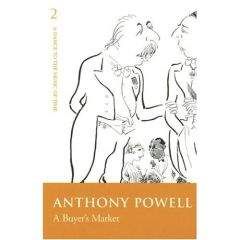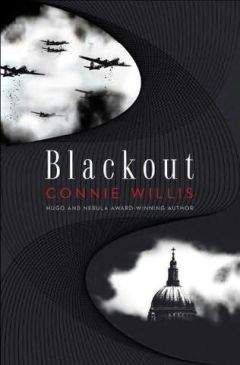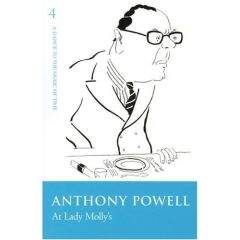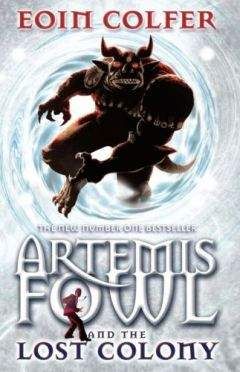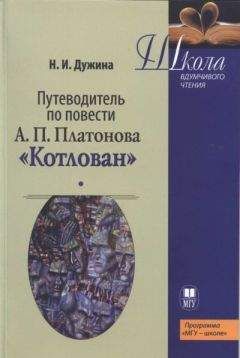W. Ainsworth - Rookwood
The progress of the storm was watched with infinite apprehension by the crowd of tenantry assembled in the great hall; and loud and frequent were the ejaculations uttered, as each succeeding peal burst over their heads. There was, however, one amongst the assemblage who seemed to enjoy the uproar. A kindred excitement appeared to blaze in his glances, as he looked upon the storm without. This was Peter Bradley. He stood close by the window, and shaded not his eyes, even before the fiercest flashes. A grin of unnatural exhilaration played upon his features, and he seemed to exult in, and to court, the tempestuous horrors, which affected the most hardy amongst his companions with consternation, and made all shrink trembling into the recesses of the room. Peter's conduct was not unobserved, nor his reputation for unholy dealing forgotten. To some he was almost as much an object of dread as the storm itself.
"Didst ever see the like o' that?" said farmer Burtenshaw (one of the guests, whose round, honest face, good wine had recently empurpled, but fear had now mottled white), addressing a neighbour. "Didst ever hear of any man that were a Christian laughing in the very face o' a thunderstorm, with the lightnin' fit to put out his eyes, and the rattle above ready to break the drums o' his ears? I always thought Peter Bradley was not exactly what he ought to be, and now I am sure on it."
"For my part, I think, neighbour Burtenshaw," returned the other, "that this great burst of weather's all of his raising, for in all my born days I never see'd such a hurly-burly, and hope never to see the like of it again. I've heard my grandfather tell of folk as could command wind and rain; and, mayhap, Peter may have the power—we all know he can do more nor any other man."
"We know, at all events," replied Burtenshaw, "that he lives like no other man; that he spends night after night by himself in that dreary churchyard; that he keeps no living thing, except an old terrier dog, in his crazy cottage; and that he never asks a body into his house from one year's end to another. I've never crossed his threshold these twenty years. But," continued he, mysteriously, "I happened to pass the house one dark, dismal night, and there what dost think I see'd through the window?"
"What—what didst see?"
"Peter Bradley sitting with a great book open on his knees; it were a Bible, I think, and he crying like a child."
"Art sure o' that?"
"The tears were falling fast upon the leaves," returned Burtenshaw; "but when I knocked at the door, he hastily shut up the book, and ordered me to be gone, in a surly tone, as if he were ashamed of being caught in the fact."
"I thought no tear had ever dropped from his eye," said the other. "Why, he laughed when his daughter Susan went off at the hall; and when she died, folks said he received hush-money to say nought about it. That were a bad business anyhow; and now that his grandson Luke be taken in the fact of housebreaking, he minds it no more, not he, than if nothing had happened."
"Don't be too sure of that," replied Burtenshaw; "he may be scheming summat all this time. Well, I've known Peter Bradley now these two-and-fifty years, and, excepting that one night, I never saw any good about him, and never heard of nobody who could tell who he be, or where he do come from."
"One thing's certain at least," replied the other farmer—"he were never born at Rookwood. How he came here the devil only knows. Save us! what a crash!—this storm be all of his raising, I tell 'ee."
"He be—what he certainly will be," interposed another speaker, in a louder tone, and with less of apprehension in his manner than his comrade, probably from his nerves being better fortified with strong liquor. "Dost thou think, Sammul Plant, as how Providence would entrust the like o' him with the command of the elements? No—no, it's rank blasphemy to suppose such a thing, and I've too much of the true Catholic and apostate Church about me, to stand by and hear that said."
"Maybe, then, he gets his power from the Prince of Darkness," replied Plant; "no man else could go on as he does—only look at him. He seems to be watching for the thunderbowt."
"I wish he may catch it, then," returned the other.
"That's an evil wish, Simon Toft, and thou mayst repent it."
"Not I!" replied Toft; "it would be a good clearance to the neighbourhood to get rid o' the old croaking curmudgeon."
Whether or not Peter overheard the conversation we pretend not to say, but at that moment a blaze of lightning showed him staring fiercely at the group.
"As I live, he's overheard you, Simon," exclaimed Plant. "I wouldn't be in your skin for a trifle."
"Nor I," added Burtenshaw.
"Let him overhear me," answered Toft; "who cares? he shall hear summat worth listening to. I'm not afraid o' him or his arts, were they as black as Beelzebuth's own; and to show you I'm not, I'll go and have a crack with him on the spot."
"Thou'rt a fool for thy pains, if thou dost, friend Toft," returned Plant, "that's all I can say."
"Be advised by me, and stay here," seconded Burtenshaw—endeavouring to hold him back.
But Toft would not be advised. Staggering up to Peter, he laid a hard grasp upon his shoulder, and, thus forcibly soliciting his attention, burst into a loud horse-laugh.
But Peter was, or affected to be, too much occupied to look at him.
"What dost see, man, that thou starest so?"
"It comes, it comes—the rain—the rain—a torrent—a deluge—ha, ha! Blessed is the corpse the rain rains on. Sir Piers may be drenched through his leaden covering by such a downfall as that—splash, splash—fire and water and thunder, all together—is not that fine?—ha, ha! The heavens will weep for him, though friends shed not a tear. When did a great man's heir feel sympathy for his sire's decease? When did his widow mourn? When doth any man regret his fellow? Never! He rejoiceth—he maketh glad in his inmost heart—he cannot help it—it is nature. We all pray for—we all delight in each other's destruction. We were created to do so; or why else should we act thus? I never wept for any man's death, but I have often laughed. Natural sympathy!—out on the phrase. The distant heavens—the senseless trees—the impenetrable stones—shall regret you more than man—shall bewail your death with more sincerity. Ay, 'tis well—rain on—splash, splash; it will cool the hell-fever. Down, down—buckets and pails—ha, ha!"
There was a pause, during which the sexton, almost exhausted by the frenzy in which he had suffered himself to be involved, seemed insensible to all around him.
"I tell you what," said Burtenshaw to Plant; "I have always thought there was more in Peter Bradley nor appears on the outside. He is not what he seems to be, take my word on it. Lord love you! do you think a man such as he pretends to be could talk in that sort of way—about nat'ral simpering?—no such thing."
When Peter recovered, his insane merriment broke out afresh, having only acquired fury by the pause.
"Look out, look out," cried he; "hark to the thunder—list to the rain. Marked ye that flash—marked ye the clock-house—and the bird upon the roof? 'tis the rook—the great bird of the house, that hath borne away the soul of the departed. There, there—can you not see it? it sits and croaks through storm and rain, and never heeds at all—and wherefore should it heed? See, it flaps its broad black wings—it croaks—ha! ha! It comes—it comes."
And driven, it might be, by the terror of the storm, from more secure quarters, a bird, at this instant, was dashed against the window, and fell to the ground.
"That's a call," continued Peter; "it will be over soon, and we must set out. The dead will not need to tarry. Look at that trail of fire along the avenue; dost see yon line of sparkles, like a rocket's tail? That's the path the corpse will take. St. Hermes's flickering fire, Robin Goodfellow's dancing light, or the blue flame of the corpse-candle, which I saw flitting to the churchyard last week, was not so pretty a sight—ha, ha!"
"But if thou didst see a corpse-candle, as thou call'st thy pale blue flame," said Toft, "whose death doth it betoken?—eh!"
"Thy own," returned Peter, sharply.
"Mine! thou lying old cheat—dost dare to say that to my face? Why, I'm as hale and hearty as ever a man in the house. Dost think there's no life and vigour in this arm, thou drivelling old dotard?"
Upon which, Toft seized Peter by the throat, with an energy that, but for the timely intervention of the company, who rushed to his assistance, the prophet might himself have anticipated the doom he prognosticated.
Released from the grasp of Toft, who was held back by the bystanders, Peter again broke forth into his eltrich laugh; and staring right into the face of his adversary, with eyes glistening, and hands uplifted, as if in the act of calling down an imprecation on his head, he screamed, in a shrill and discordant voice, "Soh! you will not take my warning? you revile me—you flout me! 'Tis well! your fate shall prove a warning to all unbelievers—they shall remember this night, though you will not. Fool! fool!—your doom has long been sealed! I saw your wraith choose out its last lodgment on Halloween; I know the spot. Your grave is dug already—ha, ha!" And, with renewed laughter, Peter rushed out of the room.
"Did I not caution thee not to provoke him, friend Toft?" said Plant; "it's ill playing with edge tools; but don't let him fly off in that tantrum—one of ye go after him."
"That will I," replied Burtenshaw; and he departed in search of the sexton.
"I'd advise thee to make it up with Peter so soon as thou canst, neighbour," continued Plant; "he's a bad friend, but a worse enemy."
"Why, what harm can he do me?" returned Toft, who, however, was not without some misgivings. "If I must die, I can't help it—I shall go none the sooner for him, even if he speak the truth, which I don't think he do; and if I must, I shan't go unprepared—only I think as how, if it pleased Providence, I could have wished to keep my old missis company some few years longer and see those bits of lasses of mine grow up into women, and respectably provided for. But His will be done. I shan't leave 'em quite penniless, and there's one eye at least, I'm sure, won't be dry at my departure." Here the stout heart of Toft gave way, and he shed some few "natural tears"; which, however, he speedily brushed away. "I tell you what, neighbours," continued he; "I think we may all as well be thinking of going to our own homes, for, to my mind, we shall never reach the churchyard to-night."
"That you never will," exclaimed a voice behind him; and Toft turning round, again met the glance of Peter.
"Come, come, Master Peter," cried the good-natured farmer, "this be ugly jesting—ax pardon for my share of it—sorry for what I did—so give us thy hand, man, and think no more about it."
Peter extended his claw, and the parties were, apparently, once more upon terms of friendship.
| Contents |
CHAPTER II
THE FUNERAL ORATION
A SUPPLY of spirits was here introduced; lights were brought at the same time, and placed upon a long oak table. The party gathering round it, ill-humour was speedily dissipated, and even the storm disregarded, in the copious libations that ensued. At this juncture, a loiterer appeared in the hall. His movements were unnoticed by all excepting the sexton, who watched his proceedings with some curiosity. The person walked to the window, appearing, so far as could be discovered, to eye the storm with great impatience. He then paced the hall rapidly backwards and forwards, and Peter fancied he could detect sounds of disappointment, in his muttered exclamations. Again he returned to the window, as if to ascertain the probable duration of the shower. It was a hopeless endeavour; all was pitch dark without; the lightning was now only seen at long intervals, but the rain still audibly descended in torrents. Apparently, seeing the impossibility of controlling the elements, the person approached the table.
"What think you of the night, Mr. Palmer?" asked the sexton of Jack, for he was the anxious investigator of the weather.
"Don't know—can't say—set in, I think—cursed unlucky—for the funeral, I mean—we shall be drowned if we go."
"And drunk if we stay," rejoined Peter. "But never fear, it will hold up, depend upon it, long before we can start. Where have they put the prisoner?" asked he, with a sudden change of manner.
"I know the room, but can't describe it; it's two or three doors down the lower corridor of the eastern gallery."
"Good. Who are on guard?"
"Titus Tyrconnel, and that swivel-eyed quill-driver, Coates."
"Enough."
"Come, come, Master Peter," roared Toft, "let's have a stave. Give us one of your old snatches. No corpse-candles, or that sort of thing. Something lively—something jolly—ha, ha!"
"A good move," shouted Jack. "A lively song from you—Lillibullero from a death's head—ha, ha!"
"My songs are all of a sort," returned Peter; "I am seldom asked to sing a second time. However, you are welcome to the merriest I have." And preparing himself, like certain other accomplished vocalists, with a few preliminary hems and haws, he struck forth the following doleful ditty:
THE OLD OAK COFFIN
In a churchyard, upon the sward, a coffin there was laid,
And leaning stood, beside the wood, a sexton on his spade.
A coffin old and black it was, and fashioned curiously,
With quaint device of carved oak, in hideous fantasie.
For here was wrought the sculptured thought of a tormented face,
With serpents lithe that round it writhe, in folded strict embrace.
Grim visages of grinning fiends were at each corner set,
And emblematic scrolls, mort-heads, and bones together met.
"Ah, well-a-day!" that sexton grey unto himself did cry,
"Beneath that lid much lieth hid—much awful mysterie.
It is an ancient coffin from the abbey that stood here;
Perchance it holds an abbot's bones, perchance those of a frere.
"In digging deep, where monks do sleep, beneath yon cloister shrined
That coffin old, within the mould, it was my chance to find;
The costly carvings of the lid I scraped full carefully,
In hope to get at name or date, yet nothing could I see.
"With pick and spade I've plied my trade for sixty years and more,
Yet never found, beneath the ground, shell strange as that before;
Full many coffins have I seen—have seen them deep or flat,
Fantastical in fashion—none fantastical as that."
And saying so, with heavy blow, the lid he shattered wide,
And, pale with fright, a ghastly sight that sexton grey espied;
A miserable sight it was, that loathsome corpse to see,
The last, last, dreary, darksome stage of fall'n humanity.
Though all was gone, save reeky bone, a green and grisly heap,
With scarce a trace of fleshly face, strange posture did it keep.
